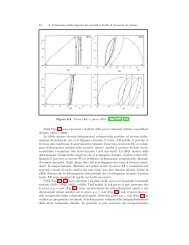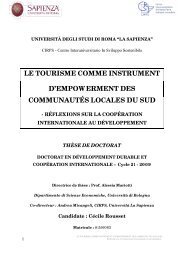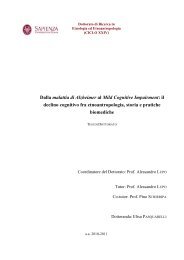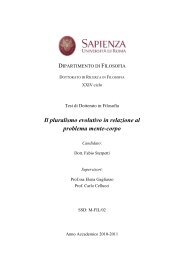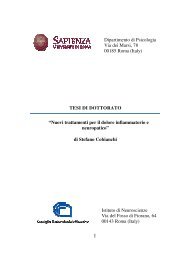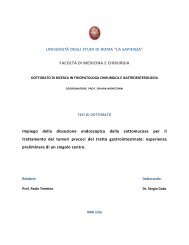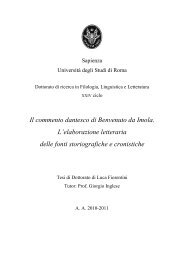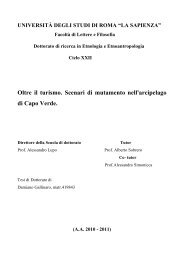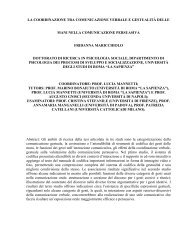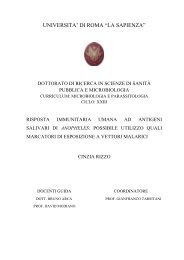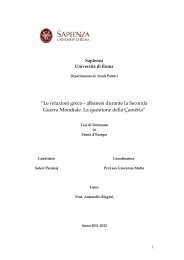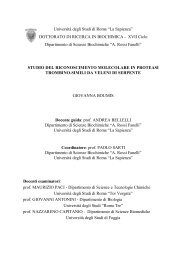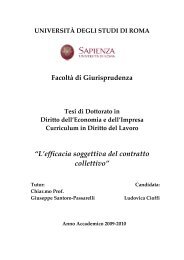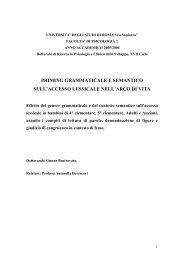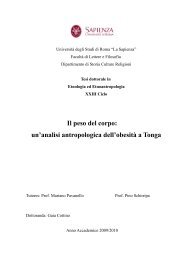Create successful ePaper yourself
Turn your PDF publications into a flip-book with our unique Google optimized e-Paper software.
Nella città assediata: dislocazione e spaesamento nella Londra di Elizabeth Bowen 113<br />
come gran parte dei suoi <strong>per</strong>sonaggi – e trascorre la maggior parte del<br />
suo tempo prima in Kent, poi a Londra. Si considera scrittrice irlandese 5 ,<br />
ma fortissimo è il suo legame con Londra. Nei primi anni Quaranta Bo-<br />
wen svolge una vera e propria attività di spionaggio a favore<br />
dell’Inghilterra, sfruttando i suoi contatti con l’Irlanda. Quella che può<br />
essere definita “the art of exclusion” 6 sembra nascere dalla consapevo-<br />
lezza di questa ambiguità. La sua, è stato detto, è una hyphenated identity,<br />
che molto incide sulla sua scrittura 7 .<br />
Il dato che qui interessa sottolineare è che Bowen si colloca tra<br />
due Paesi che assumono un diverso atteggiamento nei confronti della<br />
seconda guerra mondiale. L’Irlanda non entra in guerra con la Germa-<br />
nia 8 ; l’atteggiamento di Bowen nei confronti della neutralità irlandese è<br />
5 In un’intervista rilasciata nel 1942 <strong>per</strong> il mensile The Bell Bowen afferma: “I regard<br />
myself as an Irish novelist. As long as I can remember I’ve been extremely<br />
conscious of being Irish – even when I was writing about very un-Irish things such<br />
as suburban life in Paris or the English seaside. All my life I’ve been going<br />
backwards and forwards between Ireland and England and the Continent, but that<br />
has never robbed me of the strong feeling of my nationality”. Citato in VICTORIA<br />
GLENDINNING, Elizabeth Bowen: Portrait of a Writer, London: Phoenix, 1993, p. 165.<br />
6 PAUL DELANEY, “ ‘Act of remembrance’: History, Anxiety and Elizabeth<br />
Bowen”, in Études Irlandaises 31.1, 2006, pp. 87-103; p. 94.<br />
7 Cfr. DECLAN KIBERD, Inventing Ireland, London: Cape, 1995, p. 368. Per Kiberd,<br />
che combina l’approccio postcoloniale con i cultural studies irlandesi, Bowen “wrote<br />
not so much to record as to invent a self, a self which lived on the hyphen between<br />
‘Anglo’ and ‘Irish’.”; Per Hermione Lee, invece, “Elizabeth Bowen doesn’t have to be<br />
read as an ‘Anglo-Irish’ writer”; cfr. HERMIONE LEE, Elizabeth Bowen, London:<br />
Vintage, 1999, p. 21.<br />
8 Sull’atteggiamento degli scrittori irlandesi nei confronti di questa neutralità,<br />
cfr. CLAIR WILLS, “The Aesthetics of Irish Neutrality during the Second World War”,<br />
in boundary 2, 31.1, Spring 2004, pp. 119-145.



